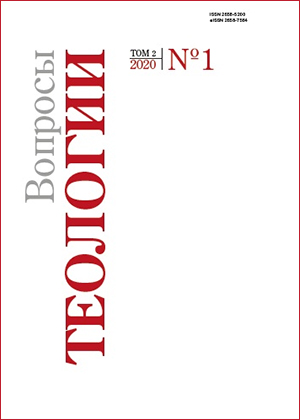Reflections of Lev Shestov on the essence of freedom in the context of theology, philosophy and modern science
DOI:
https://doi.org/10.21638/spbu28.2020.109Abstract
In his reflections on freedom, Lev Shestov considered any definition of freedom insufficient, which excludes the concept of arbitrariness, causeless action. Although he raises the source of the idea of freedom as arbitrariness (an arbitrary desire of a person violating the laws of nature) to the Jewish prophets, in reality it was taken by him from the reasoning of the hero of the novel by F. Dostoevsky, “Notes from the Underground.” The article proves that in the words of his hero, Dostoevsky objects to A. Schopenhauer in the concept of which all human actions are subject to strict causal laws, and freedom refers to the transcendental act of “choosing” one’s character, which determines the actions and remains unchanged throughout life. However, recognizing the strict regularity of all phenomena (and actions) within the world,one can see the highest human freedom in the ability to arbitrarily change the world as a whole. This is precisely what the hero of Dostoevsky, “not reconciling” with the laws of nature, has in mind, and it is precisely to this concept of freedom that Shestov comes to. The article shows that such an understanding of freedom has parallels in theology (in Kabbalah, in Sufism and in Christian Gnosticism), and also has some foundations in modern science: the quantum theory claims that the macroscopic world is the result of many acts of observation made jointly by all people.
Keywords:
Lev Shestov, F. Dostoevsky, A. Schopenhauer, freedom as arbitrariness, changing the past, mysticism, nothing, quantum theory
Downloads
References
References
Downloads
Published
Issue
Section
License
Articles of "Issues of Theology" are open access distributed under the terms of the License Agreement with Saint Petersburg State University, which permits to the authors unrestricted distribution and self-archiving free of charge.




